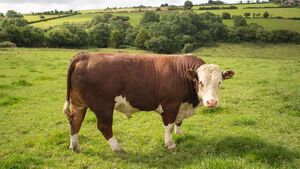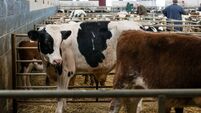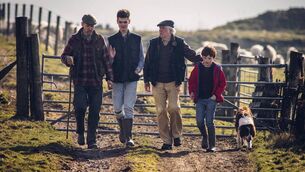Proper discussions called for on artificial insemination

The ICMSA has said the response from European Intellectual Property Office does not support claim of IP on Artificial Insemination. Stock image
The ICMSA has said the response from European Intellectual Property Office does not support claim of IP on Artificial Insemination
In a statement issued to waterford-news.ie and Waterford News & Star, a spokesperson for the organisation said it was calling on the four AI stations that dominate the Irish AI (cattle artificial insemination) market, and who have collectively decided to apply IP (Intellectual Property) to the offspring of farmers’ cows from specific bulls, to immediately suspend their decision and enter proper discussions with farmer representatives.
The spokesperson said that, based on a response from European Intellectual Property Office to an enquiry by the Association, it seemed highly doubtful whether the AI companies have the legal right to apply IP on farmers animals based on conventional breeding practices.
The ICMSA President, Denis Drennan also commented on the matter.
He said his organisation has been in contact with the European Intellectual Property Office on the matter.
"The ICMSA, has been in contact with the European Intellectual Property Office and it seems highly likely that AI stations have no legal standing in placing an IP requirement on a farmers’ animals based on conventional breeding practices," he said.
He said that in response to the organisation's query, the European IP Helpdesk stated the following: 'Under the European patent law framework, the applicability of intellectual property rights to the offspring of a bull in a cattle breeding program depends on the nature of the breeding process and compliance with Article 53(b) of the European Patent Convention (EPC). This article excludes patents on: Animal varieties Processes for the production of plants or animals that are essentially biological, such as conventional breeding involving crossing and selection; Offspring derived exclusively from such processes, which are also excluded from patentability'.
However, the helpdesk also stated that an offspring may be patentable if a technical step (e.g., genetic modification via CRISPR or UV-induced mutation) modifies the genome in a way that goes beyond conventional breeding methods and that it's not merely a tool to assist crossing or selection (e.g., using sorted sperm cells for sex selection).
Mr Drennan also noted that on the European Patents Office website, it states that 'a process for the production of plants or animals which is based on the sexual crossing of whole genomes and on the subsequent selection of plants or animals is excluded from patentability as being essentially biological'.
Mr. Drennan said the ICMSA had previously requested the AI stations to provide their legal advice on the matter without any response.
“That legal basis has not been forthcoming and it’s all just another example of that complete lack of transparency that ICMSA has already had reason to note critically," he said.
"Let’s be very clear here: the onus is squarely on the AI stations to publish their advice and to explain exactly why they believe they can impose an IP on farmers," said Mr Drennan.
Repeating his conviction that the communication around the matter on the part of the AI Stations, has been “woeful”, Mr. Drennan said that if a farmer signs a ‘AI-IP’ contract or uses an AI-IP bull in the coming weeks, then he or she will no longer have full ownership over the progeny.
However, he acknowledged the role that AI Stations had played in developing "our superb cattle genetics" but added that the majority of the work and careful selection that underpinned that progress had been carried out by the farmers who paid "handsomely” for their AI services.
“Farmers cannot, and will not, accept a situation where the ‘Big Four’ AI companies effectively try to take control of the Irish cattle breeding sector at the expense of the farmers," said Mr Drennan.
"This is a ‘Zero Sum ‘game; any ownership that the AI companies take is from the farmers," he added.
"If it goes to them, then it came from you, and we advise all farmers not to sign contracts, not to enter clubs, to resist new ‘terms & conditions’, and to strongly resist any attempts of these four companies to place an IP right over their animals, the legality of which claim is now hugely questionable."
Mr Drennan said that if someone signs a contract they would be signing away their rights to their animal.
Mr. Drennan said that the AI stations should suspend their proposal to allow time for proper debate.
“It’s perfectly possible to put a system in place that respects the position of everyone and treats all parties with fairness and respect," he said.
However he said the current situation was very disrespectful to farmer customers.
"They should ‘park’ this very antagonistic idea, step back from the ‘IP’ contracts, and participate in discussions that take cognisance of their concerns while recognising the full ownership of stock by the farmers concerned," said Mr. Drennan.






